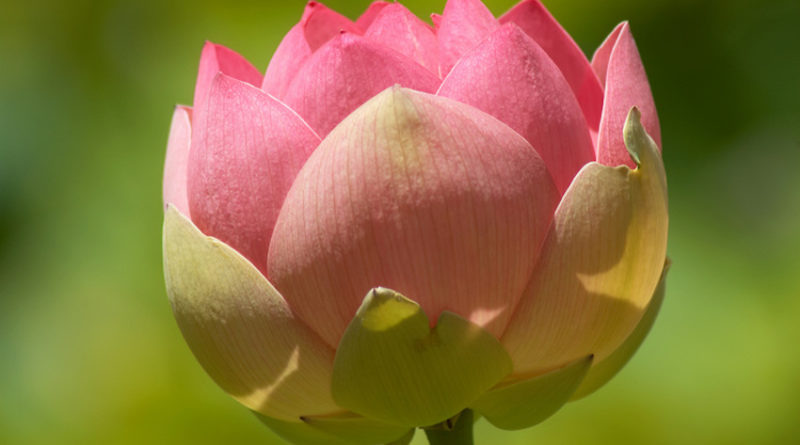Sutta Pitaka
Saṃyutta Nikāya
Division III –– Khandhaka
Book 23 –– Diṭṭhi Saṃyutta
Chapter 4 –– Gamana (Catuttha) Vagga
Namo tassa bhagavato arahato sammā sambudhassa
23. 4. 1.
(71) Vāta
1. I heard thus. At one time the Blessed One was living in the monastery offered by Anāthapiṇḍika in Jeta’s grove in Sāvatthi.
2. The Blessed One addressed the monks from there:
3. “Monks, conscious of what, grasping and settling in what, arise the view, ‘Winds do not blow, rivers do not flow, mothers do not give birth, the moon and sun do not rise and set; like a pillar everything stands still’?”
4. “Venerable sir, the Blessed One is the leader for the Teaching, hearing it from the Blessed One the monks will bear it in mind.”
“Then monks, listen carefully, I will tell you.
5. “Monks, conscious of matter, grasping and settling in it, arise the view, ‘Winds do not blow … stands still’.
6-9. “Monks, conscious of feelings, perceptions, intentions, and consciousness, grasping and settling in them arise the view, ‘Winds do not blow … stands still’.
10. “Monks, is matter permanent or impermanent?” “Venerable sir, it is impermanent” “Is it suitable to consider that changing thing is mine, I am there and it is my self?”
“Venerable sir, that is not so.”
11-14. Are feelings, perceptions, intentions, and consciousness permanent or impermanent?”
“Venerable sir, they are impermanent.”
“Is it suitable to consider these changing things are mine, I am there and they are my self?”
“Venerable sir, that is not so.”
15. “Therefore monks, whatever matter, feelings, perceptions, intentions, and consciousness, in the past, future, or present, seized or not, rough or fine, unexalted or exalted, far or near, all matter, feelings, perceptions, intentions, and consciousness are not mine, I am not there, they are not my self. This should be seen as it really is, with right wisdom.
16. Monks, the learned noble disciple seeing it thus turns from matter, feelings, perceptions, intentions, and consciousness. Turning, loses interest and knowledge arises, ‘Birth is destroyed, I am released, and I have nothing more to wish’.”
23. 4. 2.
(72) Etaṃ mama ––
23. 4. 3.
(73) So attā ––
23. 4. 4.
(74) Noca me siyā ––
23. 4. 5.
(75) Natthi dinna ––
23. 4. 6.
(76) Karato ––
23. 4. 7.
(77) Natthi hetu ––
23. 4. 8.
(78) Mahādiṭṭhi ––
23. 4. 9.
(79) Sassataloka ––
23. 4. 10.
(80) Asassataloka ––
23. 4. 11.
(81) Antavāloka ––
23. 4. 12.
(82) Anantavāloka ––
23. 4. 13.
(83) Taṃ jivaṃ taṃ sarira ––
23. 4. 14.
(84) Aññaṃ jīvaṃ aññaṃ sarīra ––
23. 4. 15.
(85) Hoti tathāgata ––
23. 4. 16.
(86) Na hoti tathāgata ––
23. 4. 17.
(87) Hoti ca na ca hoti tathāgata ––
23. 4. 18.
(88) Neva hoti na nahoti ––
23. 4. 19.
(89) Rūpī attā ––
23. 4. 20.
(90) Arūpī attā ––
23. 4. 21.
(91) Rūpīva arūpīva attā ––
23. 4. 22.
(92) Neva rūpī nārūpī attā ––
23. 4. 23.
(93) Ekantasukhī attā ––
23. 4. 24.
(94) Ekantadukkhī attā ––
23. 4. 25.
(95) Sukhadukkhī attā ––
23. 4. 26.
(96) Adukkhamasukhī attā ––
1. I heard thus. At one time the Blessed One was living in the monastery offered by Anāthapiṇḍika in Jeta’s grove in Sāvatthi.
2. The Blessed One addressed the monks from there:
3. “Monks, conscious of what, grasping and settling in what, arise the view, ‘The self is healthy, neither unpleasant nor pleasant after death’?”
4. “Venerable sir, the Blessed One is the leader for the Teaching; hearing it from the Blessed One the monks will bear it in mind.”
“Then monks, listen carefully, I will tell you.
5. “Monks, conscious of matter, grasping and settling in matter, arises the view, ‘the self is healthy, neither unpleasant nor pleasant after death.’
6-9. “Monks, conscious of feelings, perceptions, intentions, and consciousness, grasping and settling in them arises the view, ‘The self is healthy, neither unpleasant nor pleasant after death’.
10. Monks, is matter, permanent or impermanent?”
“Venerable sir, it is impermanent.”
“Is it suitable to consider that changing thing is mine, I am there and it is my self?”
“Venerable sir, that is not so.”
11-14. Are feelings, perceptions, intentions, and consciousness permanent or impermanent?”
“Venerable sir, they are impermanent.”
“Is it suitable to consider these changing things are mine, I am there and they are my self?”
“Venerable sir, that is not so.”
15. “Therefore monks, whatever matter in the past, future, or present, seized or not, rough or fine, unexalted or exalted, far or near, all matter are not mine, I am not there, they are not my self. This should be seen as it really is, with right wisdom.
16-19. Therefore monks, whatever feelings, perceptions, intentions, and consciousness, in the past, future, or present, seized or not, rough or fine, unexalted or exalted, far or near, all feelings, perceptions, intentions, and consciousness are not mine, I am not there, they are not my self. This should be seen as it really is, with right wisdom.
20. Monks, the learned noble disciple seeing it thus turns from matter, feelings, perceptions, intentions, and consciousness. Turning, loses interest, and knowledge arises, ‘Birth is destroyed, I am released and have nothing more to wish’.

